Agricultural Mechanics Industry “Stagnating”
Surveyed in most current universities in the Mekong Delta region, mechanical engineering majors in general and agricultural mechanics in particular are rare. Tra Vinh University currently has Department of Mechanical Engineering – Dynamic Engineering under Faculty of Engineering and Technology, which is currently training 3 majors: Mechanical Engineering, Automotive Engineering and Master of Mechanical Engineering Gas. Only the automotive engineering course has a number of training courses on agricultural mechanics, research on agricultural machinery and equipment that are suitable for the Mekong Delta region.
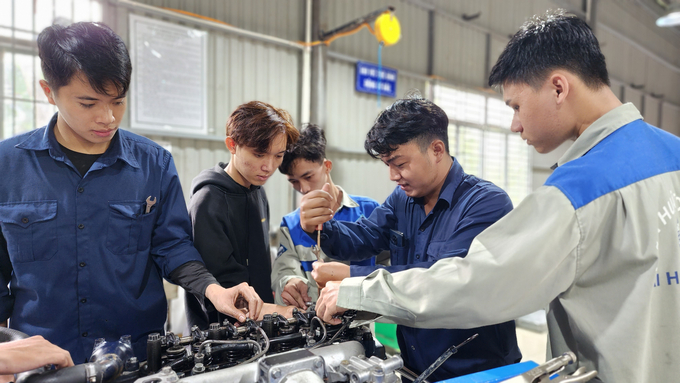
At the current universities in the Mekong Delta, courses in mechanical engineering in general and agricultural mechanics in particular are very rare. Picture: its metal.
According to Mr. Phan Tan Tai, head of the Faculty of Mechanical Engineering – Dynamics, according to the development trend of society, the majority of mechanical engineering students who graduate from the college have jobs, and the needs of domestic and foreign enterprises are enormous in the field. However, attracting students to study is still too modest.
Each year, Tra Vinh University sets an enrollment target for engineering-related majors of only about 50 students. Partly because of the psychology of the students when choosing a mechanical course, partly because of the relatively high personnel and equipment costs for the mechanical training, the orientation school will train according to the instructions of the companies.
In a survey of 34 agricultural advisory centers in provinces and cities across the country with rice production, conducted by a number of experts from the Faculty of Engineering (now Can Tho University Polytechnic School), the period 2015 – 2016 shows that the number of staff with Expertise in the field of land mechanics in these units is almost non-existent.
Mr. Nguyen Van Cuong, principal of the Polytechnic School, said that the resources for agricultural mechanics in the field of agricultural mechanization are currently very weak in the Mekong Delta. Most users of agricultural machinery and equipment are not properly trained in how to use, maintain and use the machine safely.
At Can Tho University there was a training program in Agricultural Mechanics from 1978 to 1999. However, since 1999, due to the need for mechanization, modernization and market opening, industrial parks have developed greatly, and foreign companies have invested in the labor market in the industrial sector. Growing up, the labor market for agricultural machinery manufacturers shrank.
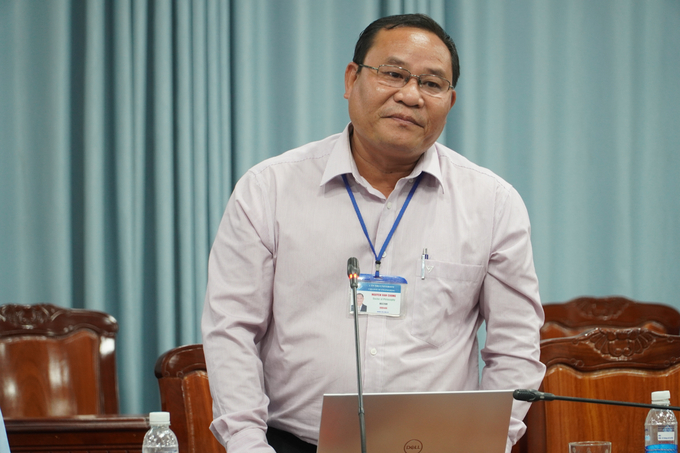
Mr. Nguyen Van Cuong, principal of Can Tho University Polytechnic School, assessed that the current resources for agricultural mechanization in the Mekong Delta are very weak. Picture: its metal.
“Many students on the agricultural engineering course have difficulties finding a job in industrial areas. Since then, it has no longer been necessary to register to study agricultural mechanics. Can Tho University has “driven” towards the labor market, shifting from Agricultural Mechanics to Mechanical Engineering. Until now, the Faculty of Mechanical Engineering – Polytechnic School (formerly Faculty of Agricultural Mechanics) trains mechanical engineering with 3 majors,” confided Mr. Nguyen Van Cuong.
Currently there are only 2 faculties in the whole country under Vietnam Academy of Agriculture (Faculty of Mechanical and Electrical Engineering) and Ho Chi Minh City University of Agriculture and Forestry (Faculty of Mechanical Engineering – Technology) that train and have Students of the Mechanical Engineering Gas course specializing in Agroforestry Mechanics. Recently, however, the number of students studying this major at the Vietnam Academy of Agriculture has decreased significantly. At the University of Agriculture and Forestry in Ho Chi Minh City, the number of candidates for the agricultural mechanic exam for 4 consecutive years from 2008 to 2011 was very small, close to 20 students, especially in 2011 there were no registered candidates agricultural mechanics.
associate Prof. Dr.Nguyen Huy Bich, Dean of the Faculty of Mechanics and Technology (Nong Lam University, Ho Chi Minh City), assessed that the reason for the current situation of this major lies in the social awareness of the discipline. In addition, the slow development of agricultural mechanization process does not make the industry’s demand for training high.
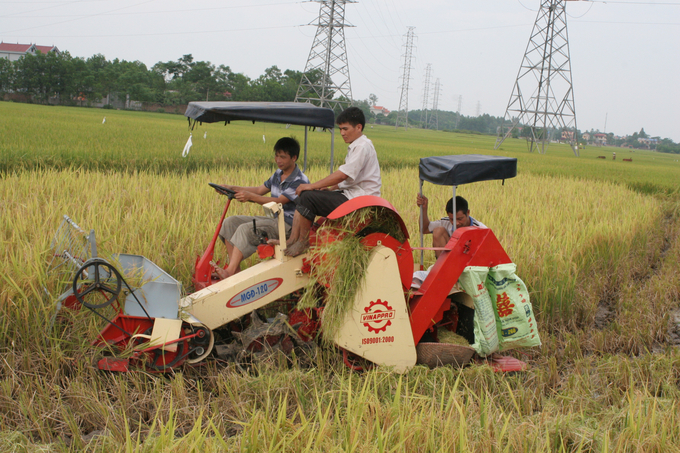
Due to the lack of synchronization in domestic mechanical engineering, many mechanical machine products “made by Vietnam” were born crippled, ineffective and difficult to develop. Picture: Life.
In addition, investment in equipment for training has not been given due consideration, which is also an important reason. “Technology changes daily, the curriculum and teaching materials hardly change. As a result, equipment becomes obsolete, cannot keep up with actual production, and graduates cannot adapt to the job,” Assoc analyzed. Prof. Dr. Nguyen Huy Bich.
From 2012, the number of students in Agricultural Mechanics major at Ho Chi Minh City University of Agriculture and Forestry has changed, increased, reaching about 70-80 students in 2015-2021. However, these are still quite modest figures, which do not correspond to development needs and current practice of promoting mechanization of agricultural production.
Successful mechanization cannot be achieved through imports alone
Currently, the Department of Mechanical Engineering at Can Tho University Polytechnic School educates mechanical engineering with 3 majors including: Mechanical Engineering, Automotive Mechanics and Process Mechanics. . In particular, the Mechanical Process Engineering course can serve all areas of design, development and manufacture of machines and systems in the field of post-harvest processing of agricultural products.
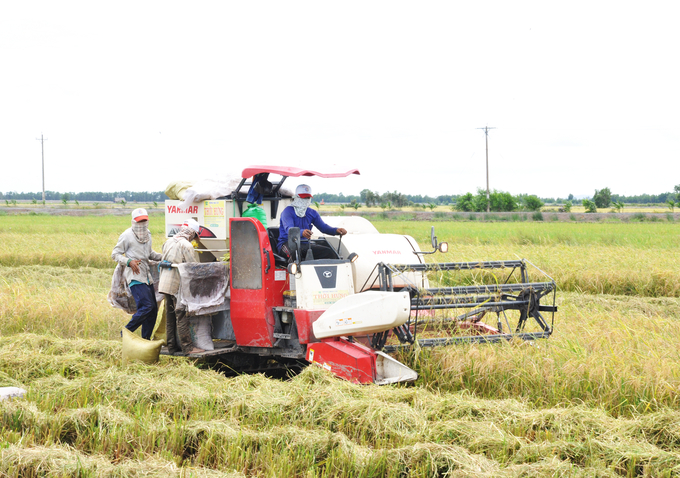
Most of the mechanical machinery in the Mekong Delta fields is now imported. Picture: Hu Duc.
Mr. Nguyen Van Cuong, Principal of the Polytechnic School, assessed that the production of this industry currently has a very good employment rate. This course relates both to the field of agricultural mechanization and to the needs of companies in industrial areas. However, when the number of applicants for the Mechanical Process Engineering course fell sharply in 2019, the university also temporarily suspended enrollment from 2020.
In the specialized mechanical engineering training programme, the Bach Khoa School also retains a number of core modules and subjects related to land mechanics such as: post-harvest technology; Techniques for drying and preserving agricultural products and food… In addition, students are also trained in motivation and motivation. The General Agricultural Mechanics course is also retained and taught for many related disciplines and majors at Can Tho University.
Most exciting is that although the course of study in the field of agricultural mechanization is not much, now many lecturers and students are engaged in scientific research projects, focusing on thesis topics, which focus on the research and development of agricultural machinery products, water and environmental systems. Hence, it shows that the demand and passion for agricultural mechanization among the students is very high.
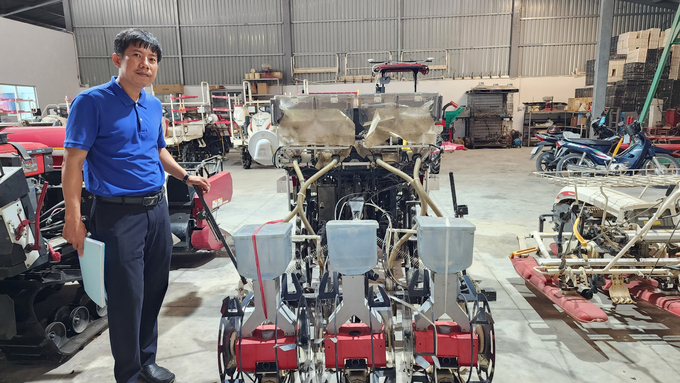
Yanmar Vietnam Company Agricultural Machinery Laboratory is located at Can Tho University to meet the learning and research needs of students of the university and related entities in the Mekong Delta region. Picture: its metal.
Mechanical engineering has a large “stand” on the labor market. In addition to working in Germany, many students have decided to work abroad. The Bach Khoa School is currently training almost 8,000 students. The mechanical engineering course has around 1,500 students. About 150-200 mechanical engineering students are enrolled annually, in some years up to 300 students, covering the human resource needs in the Mekong Delta in particular and across the country in general.
A fact in the field of agricultural mechanics in the Mekong Delta today is that human resources are weak due to the recent decline in education. At the same time, the strategy of agricultural machinery development and positioning of machinery manufacturing also encountered many problems. In fact, out of a total of more than 15,000 combine harvesters operating in the Mekong Delta, most are imported and foreign machines.
“No country has succeeded in mechanization by importing agricultural machinery. Encouraging research and “shipping” strategies to develop domestic agricultural machinery manufacturers is a sustainable and autonomous solution in the development of agricultural mechanization,” Assoc said. Prof. Dr.
According to Deputy Minister of Agriculture and Rural Development Tran Thanh Nam, at present, the agricultural sector has a great need for agricultural mechanical human resources serving the synchronous mechanization process especially in the Mekong Delta region and especially across the country. Importantly, there should be a regional agricultural mechanization center focusing on education, skill improvement, business creation and innovation to stimulate students’ creative ideas in the field of mechanical engineering.

